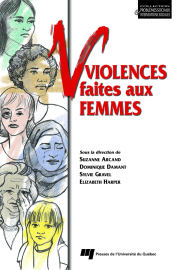THE VOICES OF NGOS Demand and Supply for Protection Services for Victims of Trafficking
This chapter, based on results from a qualitative research project commissioned by the Canadian Department of Justice, analyzes the availability of protection services for victims of trafficking in persons in Canada from the perspective of demand and supply.1 A first objective is to identify and highlight discrepancies between the “demand” for victim protection services versus the “supply” of community-based services. A second objective is to determine the root causes of these discrepancies. The voices of the NGOs who participated in the project will illustrate these dynamics. Policy recommendations to correct the imbalances between victims’ needs for services and NGOs’ ability to provide those services will conclude the chapter. 1. Despite the convention which usually places the word supply first when referring to supply and demand, the authors choose to inverse the terms in order to emphasize the demand aspect.
An overview of the phenomenon of human trafficking will situate the Canadian experience within an international context and the evolution of awareness and debates around trafficking among Canadian academics, policymakers and practitioners will be discussed. A brief description of the research project on which this chapter is based will be offered. The authors will specify the methodology applied and the results will be presented, discussing how the theory of demand and supply can be used to understand the dynamics surrounding community-based services for trafficking victims. The voices of NGOs, expressed through interview data, will illustrate the “demand” for services in terms of the needs of victims NGOs encounter and the “supply” of such services by community-based actors. An analysis of the gaps that exist between the demand and supply of services will precede the final section where policy recommendations will be offered to diminish the gaps in the hopes of better respecting the human rights of the victims of human trafficking.
Members and SHERPA Teams

Jill Hanley
Co-Scientific Director, SHERPA University Institute; Full Professor, School of Social Work, McGill University

